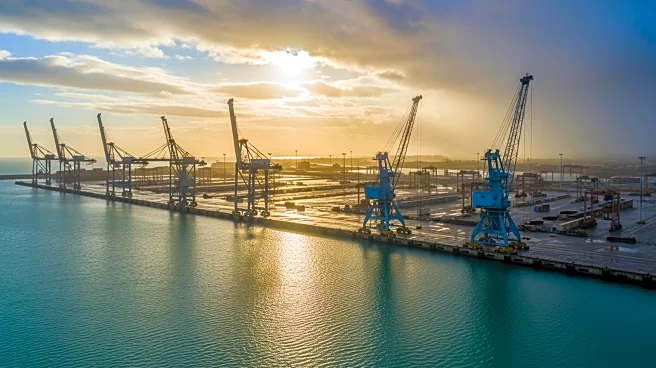What's Happening?
Pope Leo XIV addressed the Major Superiors of the Society of Jesus at the Vatican, urging them to remain faithful to their missionary tradition by engaging with the frontiers of culture, faith, and human need. The meeting, which is the first since 2005,
gathered around 100 Jesuits from across the globe for a ten-day event focused on reflection and communal discernment. Pope Leo emphasized the importance of adapting to rapid changes in culture, technology, and politics, including the ethical challenges posed by artificial intelligence. He encouraged Jesuits to practice 'holy indifference,' letting go of cherished structures when necessary, and to focus on reconciliation and synodality as major frontiers for the Church.
Why It's Important?
The Pope's call to action highlights the Jesuits' role in addressing contemporary global issues such as ecological degradation, inequality, and technological advancements. By urging Jesuits to engage with these challenges, Pope Leo XIV is reinforcing the Church's commitment to social justice and ethical guidance in a rapidly changing world. This approach could influence public policy and societal norms, particularly in areas related to technology and environmental sustainability. Jesuit institutions are encouraged to promote systemic change and resist compassion fatigue, which could lead to significant impacts on global migration and economic systems.
What's Next?
Pope Leo XIV's address sets the stage for Jesuits to take active roles in upcoming global events, such as the World Youth Day in Korea, which he described as a key moment for engaging with young people. The Society of Jesus is expected to continue its contributions to the synodal process, fostering deeper listening and collaboration within ecclesial communities. Jesuit institutions may also focus on promoting ecological sustainability and systemic change, aligning with the Pope's call for integral ecology and social justice.
Beyond the Headlines
The Pope's emphasis on discernment amid technological change suggests a deeper ethical engagement with innovations like artificial intelligence. This could lead to long-term shifts in how the Church interacts with technology, potentially influencing global standards for ethical AI development. The call for Jesuits to become 'experts in reconciliation' also points to a broader cultural shift towards healing and truth, which could impact international relations and conflict resolution strategies.















